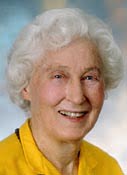Past-Life Therapy for Phobias: Patterns and Outcome – Thelma B. Freedman (Is.13)
by Thelma B. Freedman, M.A.
 The following paper presents the results of a small research study that the author carried out in partial fulfillment of the requirements for her Ph.D. at Saybrook Institute. The author examined the past-life and interlife reports of phobic people, looking for any significant patterns and also for therapeutic outcome. Her results seem heartening to our field.
The following paper presents the results of a small research study that the author carried out in partial fulfillment of the requirements for her Ph.D. at Saybrook Institute. The author examined the past-life and interlife reports of phobic people, looking for any significant patterns and also for therapeutic outcome. Her results seem heartening to our field.
Introduction
I became interested in examining past-life therapy for phobias in part because I had seen its effectiveness in my own practice. Treatment of phobias is mentioned by almost all writers on past-life therapy methods, and Clark (1995) found, in her survey of therapists, that nearly all (93%) placed phobias high on their lists of successes.
However, this … Read the rest





